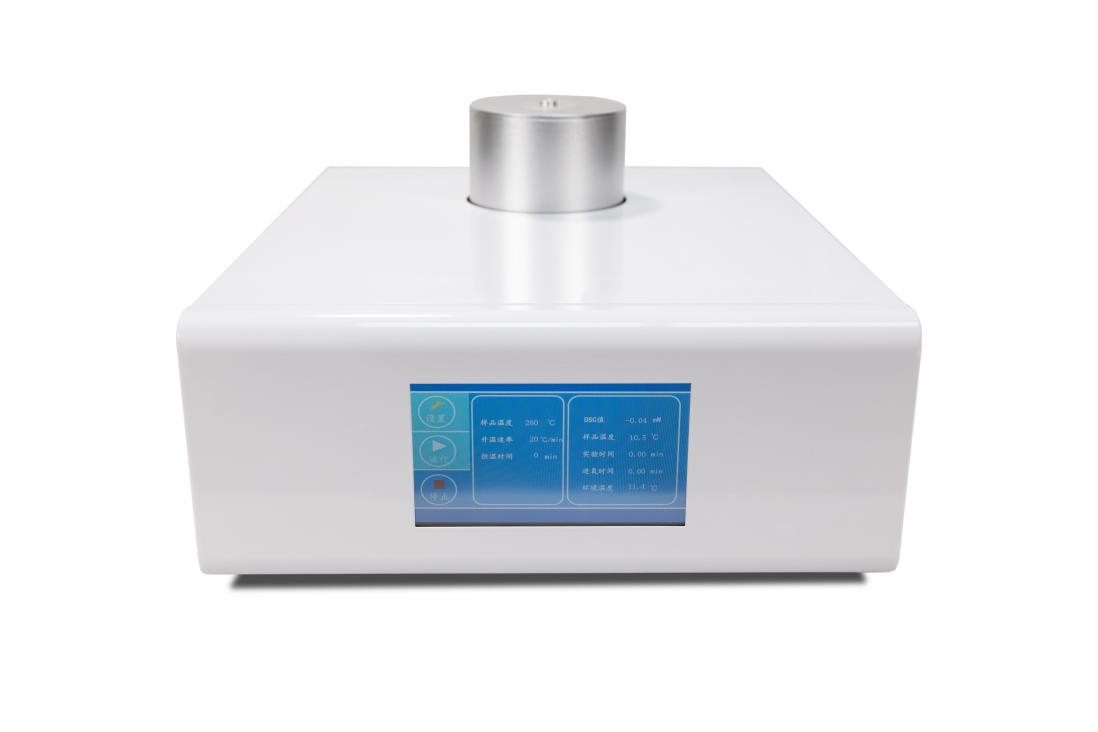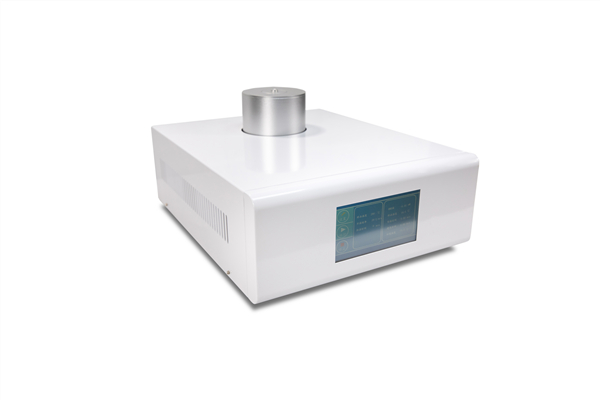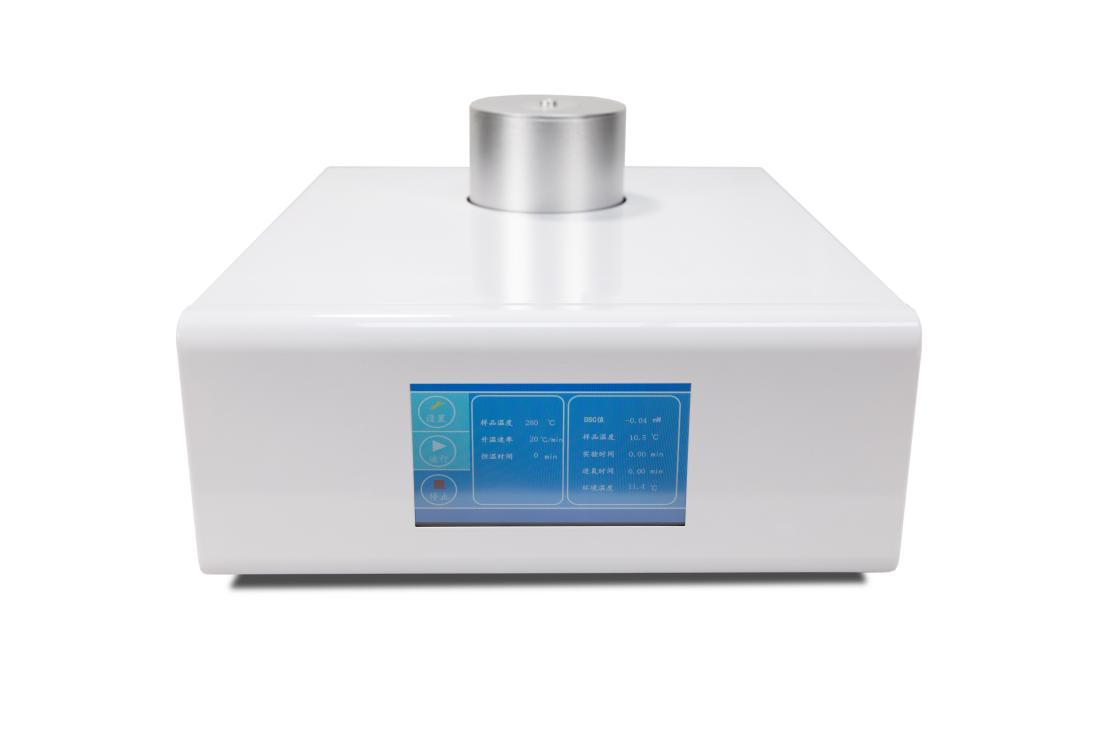Date:2024-05-20 15:57 Views:

Instrument Description:
Differential Scanning Calorimetry (DSC), as a classical thermal analysis method of thermal effects at controlled programmed temperatures, has long been widely used in today's research and development, process optimization, quality control and failure analysis of all kinds of materials and chemistry in a variety of settings. Using DSC method, we are able to study the phase transition of inorganic materials, the melting and crystallization process of polymer materials, the polycrystalline phenomenon of drugs, and the solid/liquid phase ratio of fats and oils and other foodstuffs.


Technical parameters:
1. DSC range: 0~±2000mW
2. Temperature range: room temperature ~ 600 ° C
3. Rising temperature rate: 0.1~100℃/min
4. DSC Sensitivity: 0.001mW
5. Temperature Repeatability: ±0.01℃ 6.
6. DSC Noise: 0.01μW
7. DSC resolution: 0.001μW
8. DSC Accuracy: 0.01μW
9. Temperature Resolution: ±0.01°C
10. Temperature Control Mode: Rising Temperature, Constant Temperature, Cooling Temperature (full program automatic control)
11. Curve Scanning: Rising Temperature Scanning, Cooling Temperature Scanning
12. Atmosphere control: automatic switching instrument
13. Gas flow: 0-200mL/min
14. gas pressure: 0.2MPa
15. Display: 24bit color 7 inch LCD touch screen display
16. Data interface: standard USB interface
17. Parameter standard: equipped with standard substances, with a key calibration function, the user can correct the temperature and enthalpy
18. Operating power: AC 220V 50Hz or customized
19. Power: 600W
Differential scanning calorimeter reference standard:
GB/T 19466.2 - 2004 / ISO 11357-2: 1999 Part 2: Determination of glass transition temperature;
GB / T 19466.3 - 2004 / ISO 11357-3: 1999 Part 3: Determination of melting and crystallization temperature and enthalpy;
GB /T 19466.6 - 2009 / ISO 11357-3 :1999 Part 6 Oxidation induction period Determination of oxidation induction time (isothermal OIT) and oxidation induction temperature (kinetic state OIT).